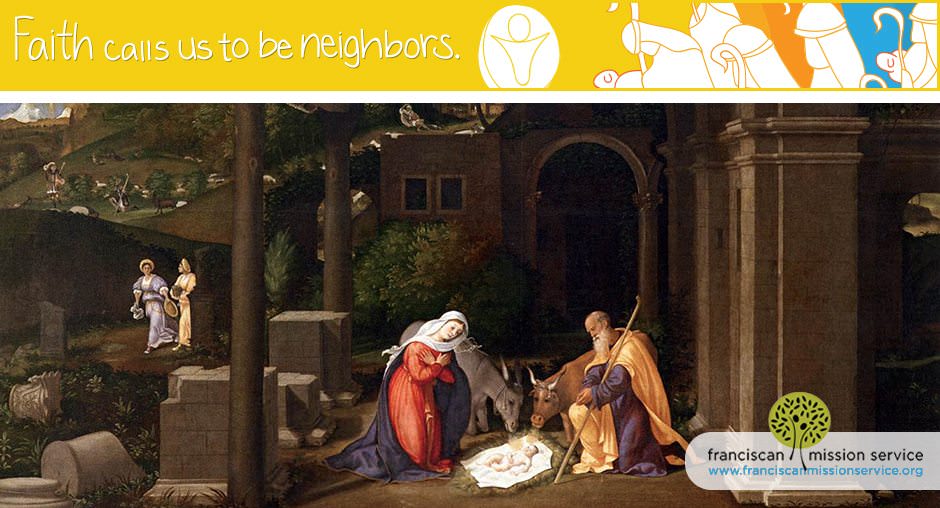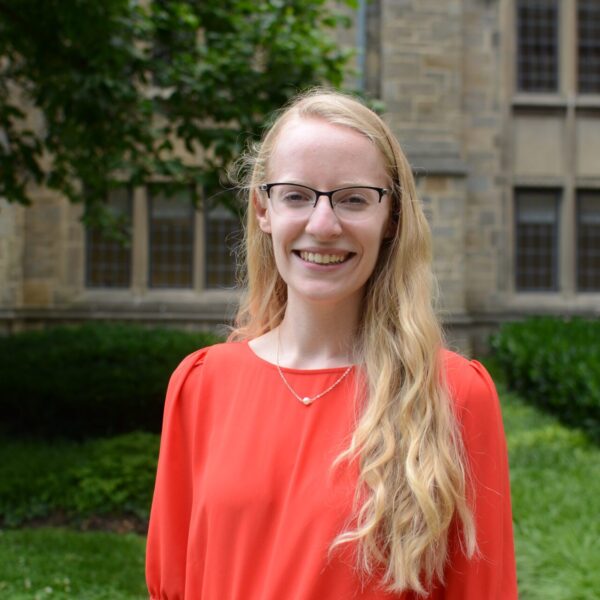Faith Calls Us to Be Neighbors: Seeing God in Others at Catholic Charities

Editor’s note: As a part of FMS’ 2017 Advent blog series, Programs Associate Rose Urankar shares a few reflections from people associated with Catholic Charities, including Barbara Fortson and Madonna Enwe.
There is something about the Christmas season that motivates people to give. Monetary and in-kind donations are made to charities throughout the nation and the world, which allow organizations to respond to a wide variety of needs. Yet people also donate their time, as FMS missioners and volunteers do, to accompany those on the margins—walking with them in their suffering and pondering these experiences in their own hearts.
Below are a few reflections from members of the FMS family (and our favorite patriarch, Pope Francis) based on their time serving with Catholic Charities, an organization whose mission is to provide services to people in need, to advocate for justice in social structures, and to call the entire Church and other people of good will to do the same. Their experiences have called them to see God in new ways and ponder the presence of God in their neighbor. May we all do the same this Advent season.
Faith Makes Us Know that God Is at Our Side
The Son of God came into this world as a homeless person. The Son of God knew what it was to start life without a roof over his head.
In the face of unjust and painful situations, faith brings us the light which scatters the darkness. As it did for St. Joseph, faith makes us open to the quiet presence of God at every moment of our lives, in every person and in every situation. God is present in every one of you, in each one of us.
We can find no social or moral justification, no justification whatsoever, for lack of housing. There are many unjust situations, but we know that God is suffering with us, experiencing them at our side. He does not abandon us.
We know that Jesus wanted to show solidarity with every person. He wanted everyone to experience his companionship, his help, his love. He identified with all those who suffer, who weep, who suffer any kind of injustice. He tells us this clearly: “I was hungry and you gave me food, I was thirsty and you gave me something to drink; I was a stranger and you welcomed me” (Mt 25:35)…
…Jesus keeps knocking on our doors, the doors of our lives. He doesn’t do this by magic, with special effects, with flashing lights and fireworks. Jesus keeps knocking on our door in the faces of our brothers and sisters, in the faces of our neighbors, in the faces of those at our side.
–Pope Francis, in a speech to an audience of two hundred Catholic Charities clients in Washington, DC
To Ponder the Depth of Human Resilience
“Welcome the stranger.” The Church demonstrates this love-in-action at home and abroad.
While observing all the people arriving on Tuesday mornings at Catholic Charities—people seeking help with their asylum claim or immigration status—I was continually struck by the number of countries, faiths, backgrounds, abilities and hopes represented in that reception room.
A short interview with each person revealed the weight of their concern about their future, and the future of their family, who might still be abroad.
Fellow staff members took great care in giving each visitor not just advice about their case or predicament, but also respect and empathy.
Each person left with either a caseworker assigned to help them, or an answer they did not want to hear but that set them on a path of greater certainty as to their status—and perhaps some freedom of mind to work on another plan of action.
In all cases, fellow workers and I were left to ponder the depth of human resilience.
–Barbara Fortson, Franciscan Mission Service Friend and Supporter
God Gave Me the Spirit of Compassion
As I work at the Refugee Service Center at Catholic Charities, one of my most difficult moments is when I realize how little I feel that I can help someone.
One morning, a lady and a social worker walked into the Catholic Charities office, and her case was presented to me so I could determine if she was eligible to receive government benefits. This woman had just been released—with her three children—from a refugee camp; she had a temporary shelter but no assistance for food or medical insurance. Unfortunately, we discovered that she was not eligible to receive benefits yet and so could not be helped by our program.
[However,] when this woman started crying, I discerned in my heart that I had to do something.
In her native language, she told me bits of her story and about her current situation. I decided to give her some of the food donations my office had received, a gift card, and the cash I had with me. I wish I could have given her more, but I did not have the means.
The next time she called me, it was about one of her children in the hospital. At that point, I got scared. I realized how heavy her burden was and how little I could do for her. I wish I had better gifts that could be of great service to her, but I was still grateful for God who gave me the spirit of compassion the day she walked into my office, to give her all that I did.
I pray for that lady and her family every day, and I hope that God may send someone who can help them in the ways that I cannot.
I also pray that God may give me more opportunities every day to share his compassion and mercy with the people I encounter, no matter how heavy their burdens are.
–Madonna Enwe, former DC Service Corps volunteer at Catholic Charities
Reflection question: How are you an advocate for peace and justice?
Tagged in:

